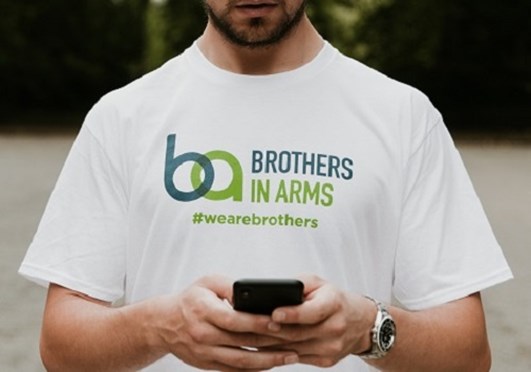Date: Monday 25 Nov 2024
“With one-third of mental health conditions emerging before the age of 14 and half before the age of 18, early action is essential to enable children and young people to thrive and realise their full potential,”
A recent article in The Guardian highlights a pressing issue: the need for resilience interventions in education. These strategies equip individuals with the necessary tools to navigate life's challenges, particularly for young men who face unique societal pressures. Understanding the importance of these interventions can lead to significant improvements in mental wellbeing.
The Importance of Resilience Interventions
Resilience interventions are proactive measures designed to help individuals manage stress and cope with adversity. For younger males, who often grapple with societal expectations that discourage vulnerability, these interventions can be transformative. They provide essential skills that promote emotional literacy and healthy coping mechanisms.
Addressing the Crisis of Connection
Men are disproportionately affected by suicide, with this tragic outcome being the leading cause of death for those under 45 in the UK. Traditional masculinity often discourages men from expressing their emotions or seeking help. This societal expectation can lead to a "crisis of connection," leaving many men isolated and vulnerable to negative coping mechanisms.

“The best we can do is equip people with the best possible tools that we know can potentially help to create a more positive overall trajectory,”
Benefits of Resilience Interventions
Resilience interventions offer several benefits tailored specifically for men:
-
Challenging Norms: These interventions help dismantle harmful stereotypes surrounding masculinity by promoting emotional expression and healthy coping strategies.
-
Creating Safe Spaces: Platforms like Blethr provide anonymous, judgement-free environments where men can explore their feelings without stigma. Research shows that men are more likely to engage with mental wellbeing support in safe settings.
-
Building Connections: Group activities and peer support foster camaraderie, helping men feel less isolated. This is crucial, as many men struggle with loneliness and lack social connections for emotional support.
-
Action-Oriented Approaches: Initiatives like Men's Sheds appeal to men who may be uncomfortable with traditional self-exploration methods. These programs offer purpose and achievement while facilitating social interaction.
-
Early Intervention: By equipping men with skills to recognize and manage early signs of distress, resilience interventions can prevent issues from escalating into crises.
A Call to Action
To effectively implement resilience interventions, several steps must be taken:
-
Integrate Resilience Training into Education: Schools should introduce boys to healthy coping strategies and emotional literacy from an early age.
-
Promote Male-Friendly Mental Wellbeing Services: Services must be accessible and welcoming to men, considering factors like location and activity-based options.
-
Challenge Harmful Stereotypes: Society must actively work to dismantle the stigma surrounding men's mental wellbeing and promote positive expressions of masculinity.
-
Empower Peer Support: Encouraging open conversations and peer support networks can help men recognize they are not alone in their struggles.

Here are some questions based on our article "Resilience Interventions: Essential Tools for Men’s Mental Wellbeing" to help men explore resilience in response to Blethr asking, "Hi, what's on your mind?":
- "I'm feeling a bit lost. Like I've lost my purpose. What can I do to feel more driven?" Research suggests that having a purpose can be a key to understanding "socially negotiated self-worth," which is vital for men's mental health and resilience. This question encourages users to consider their purpose and to take steps to achieve it.
- "I'm feeling stressed and overwhelmed. What are some healthy ways I can cope with stress?" The article highlights that men can struggle with emotional expression and may turn to unhealthy coping mechanisms. This prompt allows users to consider their coping strategies and to learn about healthier alternatives.
- "I want to feel more resilient. What are some things that resilient people do?" Resilience interventions focus on strengthening protective factors and promoting positive coping skills. This prompt allows users to explore these concepts.
- "How can I strengthen my support network?" Men may avoid discussing their emotions due to societal pressures. Building connections is crucial for resilience. This prompt encourages users to reach out to others for support.
- "I'm feeling stuck in a rut. What can I do to change?" This question can help men explore behavioural activation, a key component of resilience interventions. Behavioural activation helps individuals engage in activities that bring them joy and purpose.
Remember, Blethr starts the conversation, but men need to engage with the platform and continue the conversation. These questions are a first step in encouraging men to open up about their feelings, explore their challenges, and focus on building their resilience.
Conclusion
Embracing early resilience interventions can empower younger men especially to take control of their mental wellbeing, build stronger connections, and lead fulfilling lives. By fostering an environment where men feel supported and valued, we can create a society that encourages emotional expression and resilience. The time for action is now, and together, we can make a difference.
Read the full article here: https://www.theguardian.com/society/2024/nov/24/resilience-interventions-do-work-why-coping-strategies-should-be-a-staple-of-education
Learn about Blethr here: https://www.brothersinarmsscotland.co.uk/blethr-for-men/



